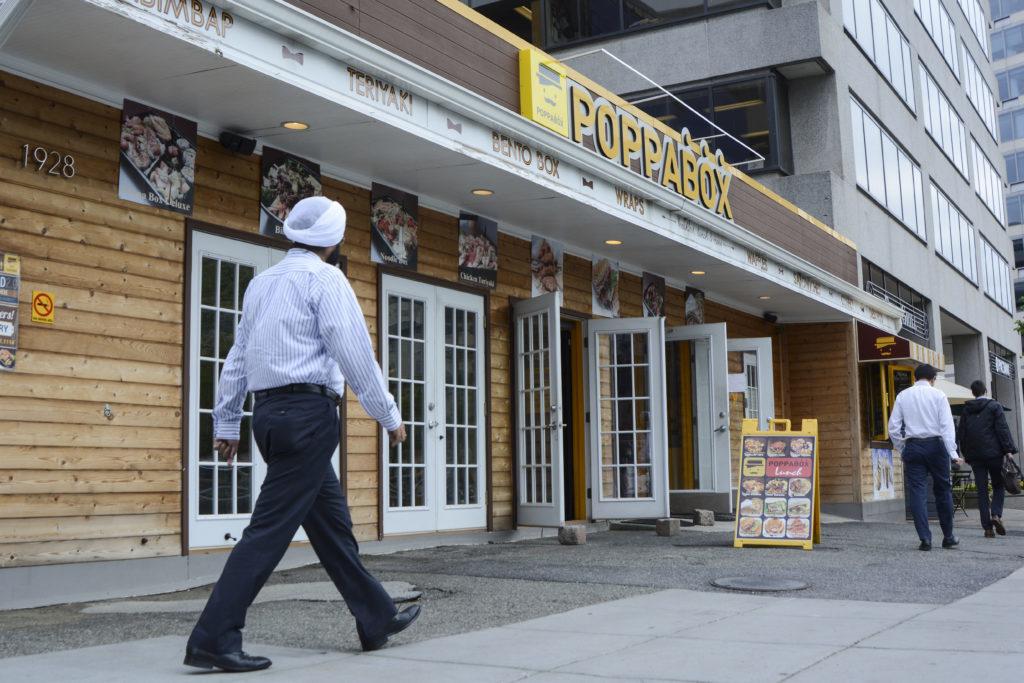The city wants to pay District businesses to give the public free access to their restrooms – but some local businesses say they aren’t interested.
Four D.C. Council members introduced a bill this month that would provide financial incentives to businesses who make their restrooms available to the public for free. Community leaders said the move would benefit homeless and disabled residents, who often struggle to find available restrooms in the city, but local business managers said the incentives would not be worth the hassle of the public constantly using their bathrooms.
The proposed program, called the Community Toilet Incentive, would pay businesses 110 percent of the extra cleaning and maintenance costs caused by more people using their restrooms. Businesses would be required to tell officials how much they pay for maintenance before entering the program to determine the added cost of opening their bathrooms to the public.
Participating businesses would be required to post signs, provided by the District, in a prominent location to show that their restrooms are publicly accessible.
At-large D.C. Council member Robert White, who co-sponsored the bill, said in an email that it is often a challenge for residents and visitors to find public restrooms in the District.
“When a homeless person in desperate need of a restroom sees a sign in a business that reads ‘restrooms for patrons only,’ it’s a tough daily reminder of how much we need more public restrooms,” White said.
D.C., especially the National Mall area, is known for its lack of public bathrooms. This problem has influenced groups like the People for Fairness Coalition to work on opening safe and clean public restrooms downtown.
The bill is currently under Council review and was referred to the Committee on Health.
Foggy Bottom community leaders said offering accessible restrooms would improve hygiene in the neighborhood because it provides a place for homeless and disabled residents to use a proper bathroom.
Marina Streznewski, the president of the Foggy Bottom Association, said although she doesn’t think many businesses will take the city up on its offer, more public restrooms in Foggy Bottom would be convenient for all area residents.
“I think it is a shame that we are the capital of the United States and unlike other world capitals we don’t have public restrooms,” she said.
Streznewski said the lack of public restrooms has led many people to relieve themselves in alleys, creating concern about cleanliness in the neighborhood.
Andrew Jones, a junior and the secretary and treasurer of the GW based non-profit Asepsis, an organization that fights sanitation issues within the city, said he supports the bill as a way to alleviate issues with homelessness. He said many people, including GW students, are impacted by the lack of public restrooms in Foggy Bottom.
“We anticipate pushback,” he said. “There are people who are going to think that opening their businesses or building public bathrooms in a particular area will attract the wrong kind of person there.”
Some local business owners said they would not participate in the program if it passes because they feared opening their restrooms to the public would decrease cleanliness and deter potential customers.
Arron Kim, the manager of PoppaBox, an Asian-fusion restaurant on 20th Street, said although he is familiar with the need for public bathrooms in the area, he would be concerned about the safety of his customers and employees if the restaurant’s bathroom was publicly accessible.
“I let most people, customers or not, use the bathroom here. But I wouldn’t do it because it’s too much of a responsibility,” he said of the Council’s proposed program.
Kim said he has seen multiple people using drugs inside the PoppaBox bathroom, a behavior he said hurts business.
David Tabo, the owner of David’s Hair Studio on I Street, said he would not be interested in the program out of fear that publicly accessible restrooms would become dirty and unsanitary.
During the Women’s March in January he allowed several guests in town to use the studio bathrooms, but does not plan to make that a permanent policy, Tabo said.
“I don’t mind if people use my bathroom once a month or even once a week,” Tabo said. “But to open my door unlimitedly is too much.”





